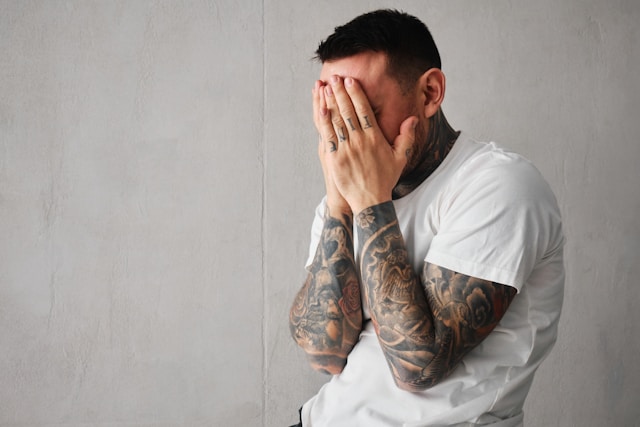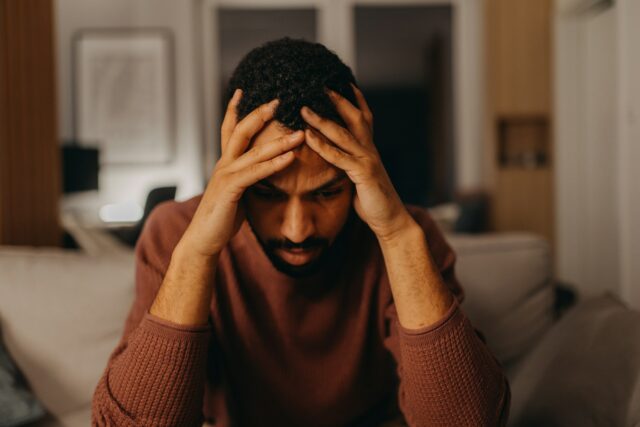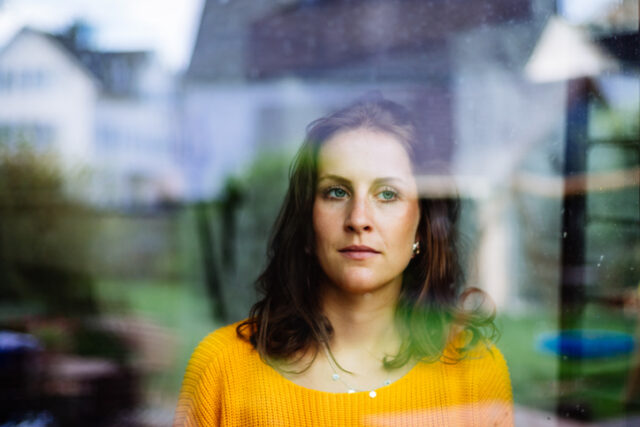Everyone has bad days (or even weeks), but if you’re walking around in a permanent haze of misery, there’s obviously something deeper going on.

Depression can hit you out of nowhere, and it’s overwhelming at times. You might be dismissing the state of your mental health as just a temporary funk, but if you relate to more than a few of these experiences, it’s more likely you’re depressed. You might want to talk to a friend, family member, therapist, or even your GP about it. And, if you’re really struggling and need to talk to someone immediately, Samaritans is always available 24/7 at 116 123.
1. Your energy levels are chronically low.
 Source: Unsplash
Source: Unsplash Feeling tired all the time, even after a full night’s sleep, is a hallmark of depression. This persistent fatigue makes even simple tasks feel overwhelming. Unlike normal tiredness, this exhaustion doesn’t go away with rest and can leave you feeling trapped in a cycle of inactivity.
2. You’ve lost interest in things you used to love.

When hobbies, activities, or social events no longer bring you joy, it could be a sign of depression. This loss of interest, known as anhedonia, can make life feel dull and unmotivating. Even things that once made you excited might now feel meaningless or like a chore.
3. You’re withdrawing from friends and family.

A noticeable pull toward isolation is common with depression. You might cancel plans, avoid calls, or feel unable to connect with loved ones. While alone time can be healthy, prolonged withdrawal is often a sign that something deeper is happening.
4. Your sleep patterns are completely off.

Depression can cause insomnia, where you struggle to fall or stay asleep, or hypersomnia, where you sleep excessively but still feel fatigued. These irregular sleep patterns can make it harder to cope with daily life, creating a vicious cycle of exhaustion and low mood.
5. You feel hopeless or helpless.

Depression often brings a sense of hopelessness, where it feels like nothing will ever improve. This emotional weight can leave you feeling stuck or powerless to change your circumstances. These thoughts can make it challenging to seek help or see the possibility of brighter days ahead.
6. You’re constantly irritable or angry.

While depression is often associated with sadness, it can also manifest as irritability or frustration. You might snap at people over minor things or feel a constant undercurrent of anger. These emotions often stem from the internal struggle depression creates.
7. Your appetite has drastically changed.

Depression can cause significant changes in appetite, leading to overeating or a lack of interest in food. Some people turn to comfort eating, while others lose their appetite entirely. These shifts can lead to noticeable weight changes and further affect your energy levels.
8. Concentration feels impossible.

Depression often clouds your ability to focus or make decisions, even on simple tasks. You might find yourself rereading the same sentence repeatedly or zoning out in conversations. This mental fog can make you feel disconnected and add to feelings of frustration.
9. You’re experiencing unexplained physical pain.

Emotional distress from depression can manifest physically, causing headaches, muscle aches, or stomach issues. These symptoms often don’t have a clear medical cause and can make depression even harder to manage. The connection between mental health and physical well-being is powerful and often overlooked.
10. You’re overly critical of yourself.

Depression amplifies negative self-talk, making you feel like a failure or that you’re not good enough. Your inner critic can become relentless, overshadowing your accomplishments and feeding feelings of worthlessness. Over time, all that self-judgement can really do a number on your self-esteem.
11. Everyday tasks feel overwhelming.

Simple activities like doing laundry, responding to emails, or even taking a shower can feel monumental during depression. The energy required for basic tasks often feels out of reach, adding to the sense of being stuck or incapable. It can lead to neglecting responsibilities, which only worsens feelings of guilt.
12. You’re thinking about death or suicide.

Persistent thoughts about death or self-harm are serious signs of depression and should never be ignored. These thoughts may range from passive musings to active planning. When this happens, it’s vital that you get help immediately. Don’t wait and hope the feeling will pass — reach out to someone now. Either call 111 or Samaritans, as previously mentioned, at 116 123.
13. Your emotions feel numb or muted.

Rather than intense sadness, some people with depression experience emotional numbness—a lack of feeling altogether. You might find it difficult to cry, feel happy, or connect emotionally with other people. The emotional detachment can make life feel empty and disconnected.
14. You feel like a burden to people.

Depression can convince you that your presence is a weight on those around you, even when it’s far from the truth. This belief often prevents people from reaching out for help, isolating them further. Recognising that your feelings aren’t facts is a crucial step in breaking this cycle.




